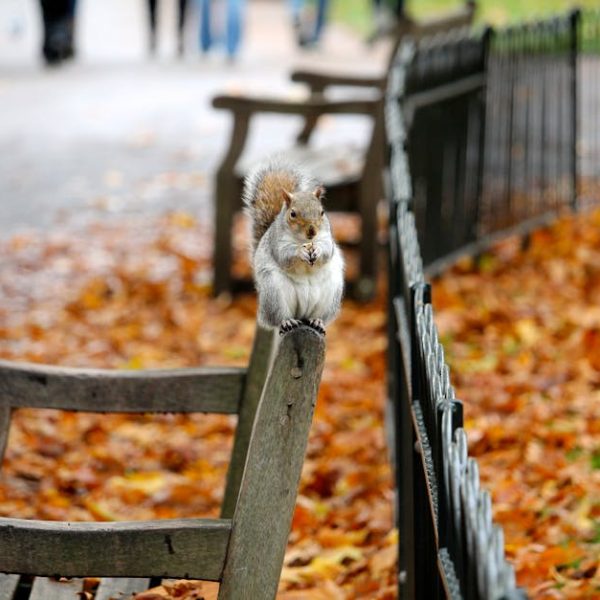The lifespan of cucumbers varies greatly, but under ideal conditions, fresh cucumbers usually last for around one to two weeks. This however is somewhat contingent upon factors such as the freshness of cucumbers when purchased and the storage techniques employed post-purchase.
Lifespan of Fresh Cucumbers
Fresh cucumbers, known for their crisp texture and refreshing flavor, typically last between one and two weeks if stored correctly. This lifespan hinges on a few crucial variables, with the point of purchase freshness being prominent. Selecting cucumbers that are firm, vibrant in color, and free of blemishes or soft spots, significantly extends their shelf-life.
Best Practices:
- Opt for cucumbers with an intense green color and a firm texture.
- Avoid those with yellow tones, blemishes, or soft spots- these characteristics often indicate a shorter shelf-life.
The Role of Storage Conditions in Cucumber Lifespan
How you store your cucumbers plays a pivotal role in determining their longevity. Cucumbers thrive in cooler temperatures and high humidity levels, conditions that are essential for maintaining their freshness. Storing cucumbers at temperatures between 50 and 55 degrees Fahrenheit, coupled with high humidity, typically achieves best results. However, lower temperatures increase the risk of chill damage, which results in softening and pitting.
Comparison:
| Storage Condition | Impact on Cucumber Lifespan |
|---|---|
| Room Temperature | Reduces lifespan to 2-3 days |
| Refrigerator (Low Humidity) | Extends lifespan to 1 week |
| Refrigerator (High Humidity) | Extends lifespan to 1-2 weeks |
Cucumber Storage Techniques for Maximum Freshness
Proper storage of cucumbers can both improve their lifespan and maintain their refreshing flavor and crisp texture. Refrigeration is the most common form of short-term storage, but it’s important to prevent them from becoming too cold as this could cause damage. Wrapping cucumbers in plastic or placing them in a plastic bag can help maintain the desired humidity levels. For long-term storage, pickling is a viable option, as it can significantly extend their usability.
Pro Tips:
- Use a paper towel to wrap the cucumber before placing it in a plastic bag. This helps absorb any excess moisture.
- Store cucumbers in the crisper drawer of your refrigerator, which tends to have higher humidity and slightly warmer temperatures than the rest of the fridge.
Recognizing Signs of Spoilage in Cucumbers
One of the essential aspects of food safety and reducing waste is understanding when your food has turned bad. With cucumbers, it’s important to look out for several signs of spoilage. Changes in color or texture, like the cucumbers turning soft, squishy, or wrinkled, could indicate that they are no longer fresh. A sour smell and the presence of mold are more strong indications that cucumbers are no longer safe to consume.
Checklist:
- Changes in color from a vibrant green to a yellowish hue.
- Softness or wrinkles on the surface.
- A pungent or sour odor.
- Signs of mold growth.
Methods to Use Up Cucumbers before their Expiry
Finding creative ways to use your cucumbers before they turn bad can be a fun challenge. This not only reduces food waste but also allows you to enjoy the refreshing taste of cucumbers in various dishes. For instance, making cucumber salads, infusing water, pickling for future use, or blending them into sauces or smoothies, are excellent ways to use up cucumbers.
Pros and Cons:
| Method of Use | Pros | Cons |
|---|---|---|
| Salads | Fresh and healthy. Quick to prepare. | Can become monotonous if used excessively. |
| Pickling | Extends the lifespan indefinitely. Adds a unique taste. | Requires preparation. Alters the fresh taste of cucumbers. |
| Blending into Sauces or Smoothies | A creative usage. Adds nutritional value to meals. | You might require large quantities of cucumbers for some recipes. |
The key to making the most out of your cucumbers lies in adopting appropriate storage techniques, recognizing when they’ve gone bad, and of course, cleverly using them up before their expiry. Remember, food safety should always be a priority, so if in doubt, it’s better to toss it out. Happy crunching!
Key Takeaway:
- Fresh cucumbers generally last a week or two. However, their lifespan can change drastically based on factors like initial freshness and storage methods.
- Storage conditions notably influence a cucumber’s lifespan. Storing cucumbers at a temperature around 50 to 55 degrees Fahrenheit and high humidity generally offer the best results.
- Cucumbers can be stored effectively using methods like refrigeration and pickling. Tips such as using paper towels to absorb excess moisture can extend the cucumber’s lifespan.
- Recognizing spoilage signs are crucial for food safety. Key spoilage indicators include changes in color or texture, a sour smell, and the presence of mold.
- Finding innovative ways to use cucumbers, like preparing salads, pickling, or making cucumber-based recipes, can ensure cucumbers are consumed before they expire.
In the world of cucumbers, knowledge is power. Understanding the best practices for storage, along with recognizing signs of spoilage, will undoubtedly help maximize the freshness of your cucumbers and enjoyment at mealtime. Remember that a well-stored cucumber is a well-flavored cucumber.
FAQs
Q: Can cucumbers be frozen for extended storage?
A: Yes, cucumbers can be frozen for long-term storage. However, frozen cucumbers may lose their crunchiness upon thawing and are best used in cooked dishes.
Q: Can the age of the cucumber at the point of purchase affect its lifespan?
A: Absolutely. Freshly harvested cucumbers will typically have a longer shelf-life than those that have been sitting at a grocery store for several days.
Q: Can refrigerating cucumbers chill damage them?
A: Yes, storing cucumbers at temperatures below 50 degrees Fahrenheit can cause chill damage, which results in softening and pitting.
Q: Is it safe to consume a cucumber that has slight discoloration or wrinkles?
A: If the cucumber has only slight discoloration or just a few wrinkles, it might still be safe to consume. However, if it has weak spots, a sour smell, or any signs of mold, these are indications that it should not be consumed.
Q: Can I still use spoiled cucumbers for composting?
A: Yes, spoiled cucumbers can be composted. However, if they show signs of mold, it’s best to refrain as it can be detrimental to compost health.
Don’t hesitate to share this insightful guide on cucumber storage with others and continue exploring our page for more similar posts. Happy crunching!






